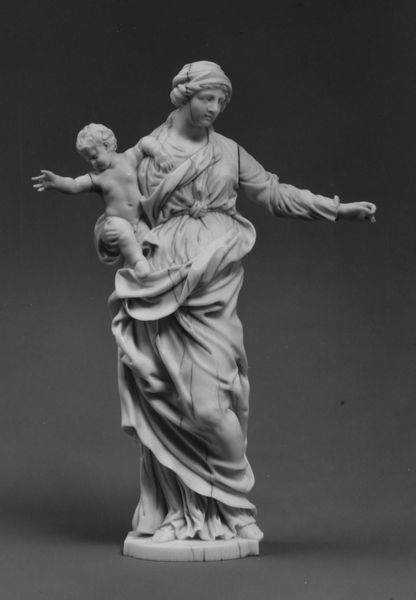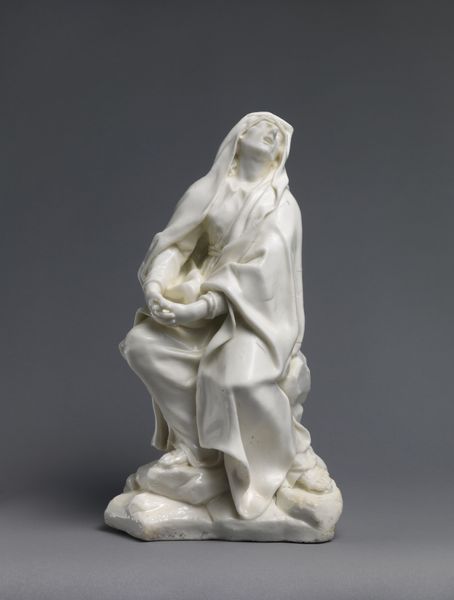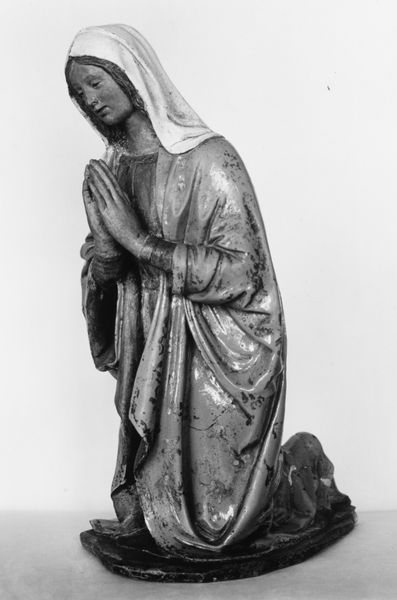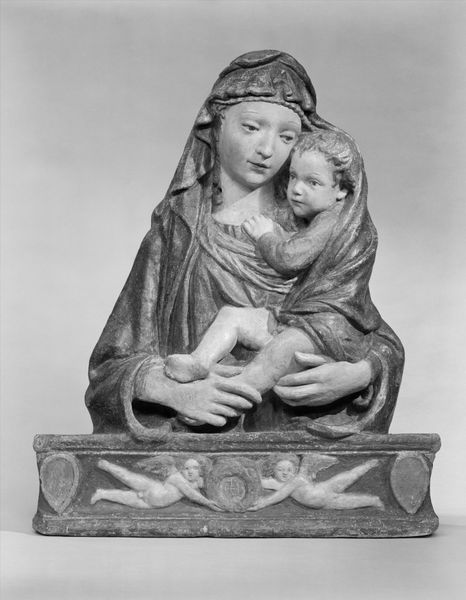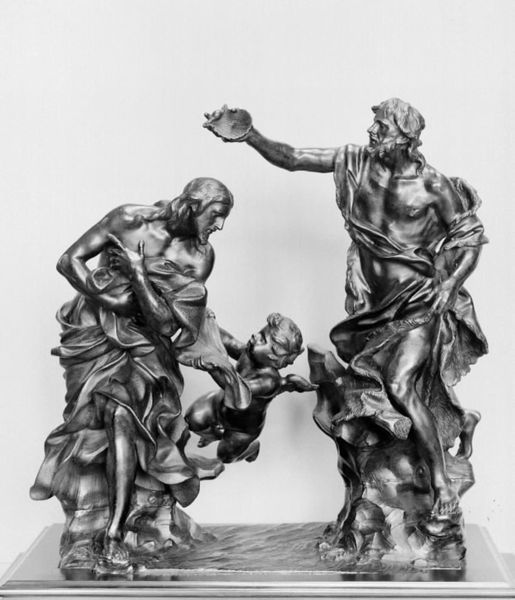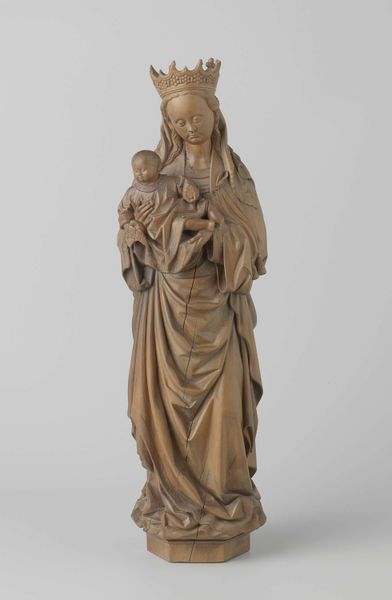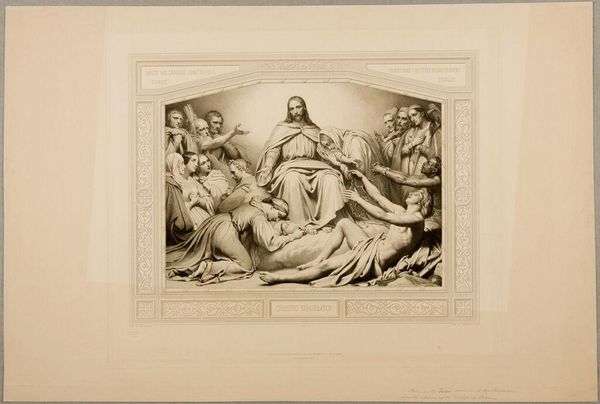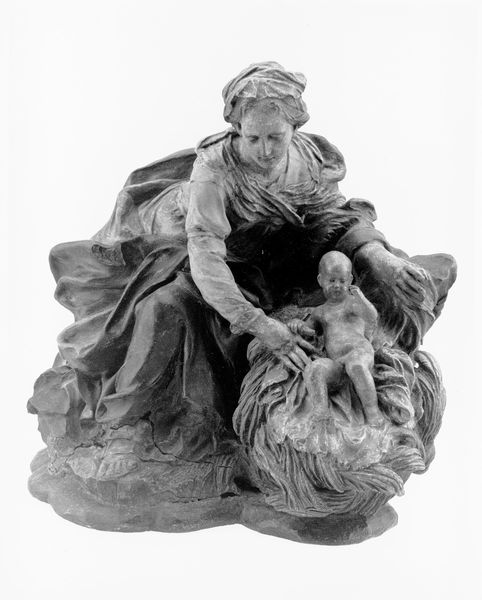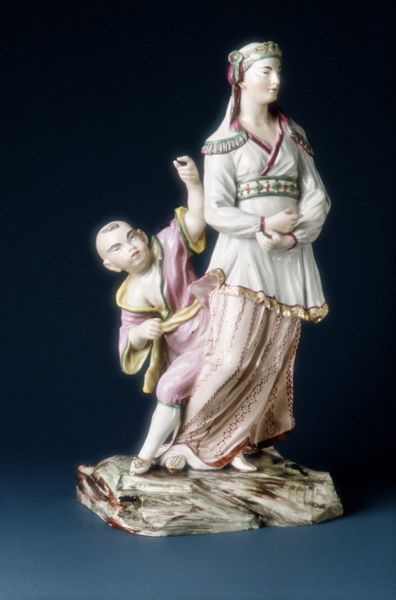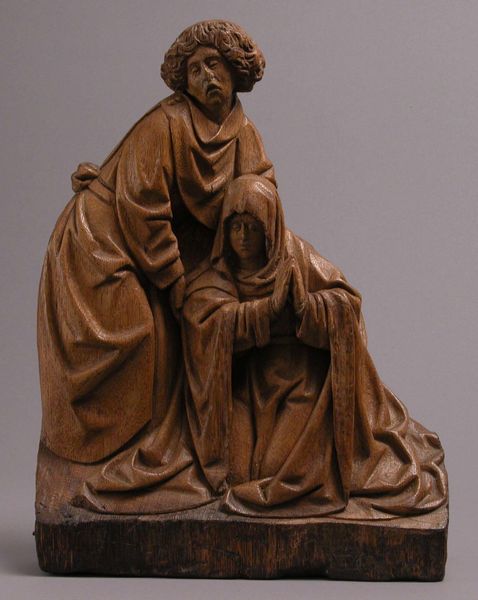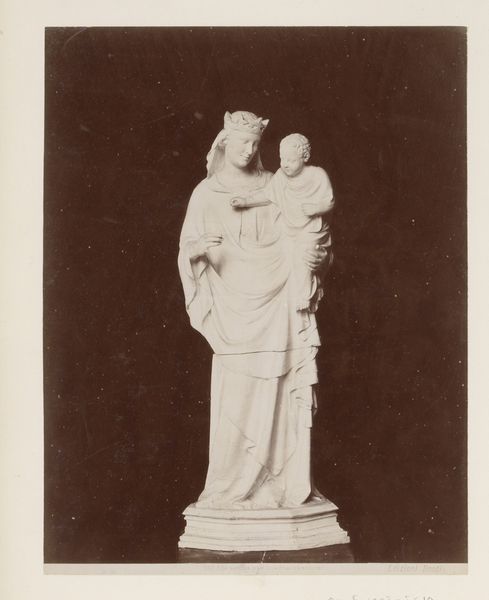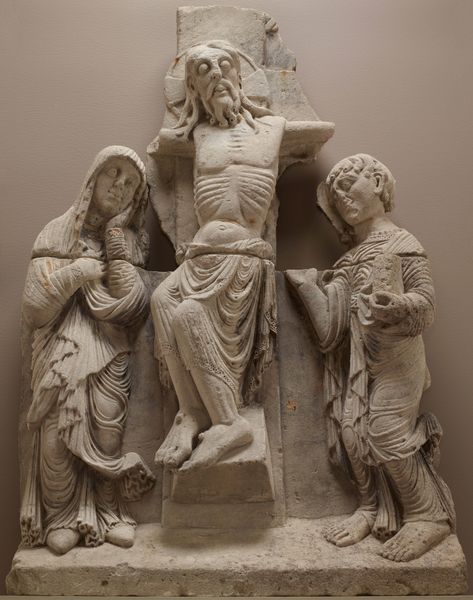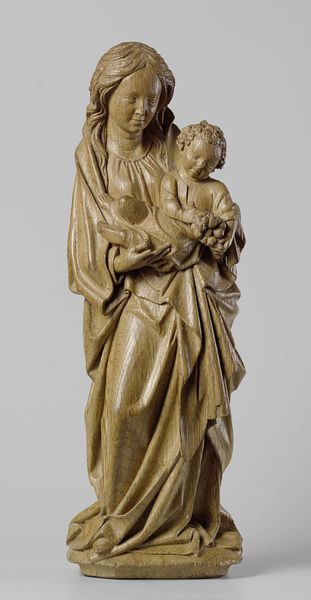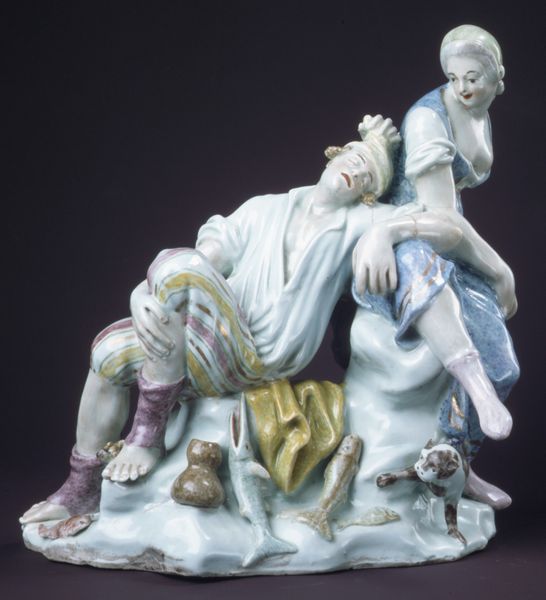
sculpture, marble
#
neoclacissism
#
sculpture
#
figuration
#
sculpture
#
black and white
#
history-painting
#
marble
Dimensions: Approx. 20 x 16 x 11 in. (50.8 x 40.6 x 27.9 cm)
Copyright: Public Domain
William Beattie made this porcelain sculpture, “Figure of the Finding of Moses,” sometime in the 19th century. It depicts the moment when the Egyptian Pharaoh's daughter discovers the infant Moses in a basket on the Nile. Beattie's choice of this biblical subject reflects the 19th century's fascination with religious themes and historical narratives. In Britain, the church was still a political force, and ‘genre’ scenes from scripture were commonly commissioned for private chapels. The composition draws on established visual codes: the kneeling woman reaches out to the child, while the Pharaoh’s daughter looms protectively over him. The sculpture also includes a sphinx as a symbol of the story’s Egyptian context. The image invites us to consider the role of religious institutions in shaping both artistic production and social values in 19th century Britain. By examining historical sources, we can uncover the complex interplay between faith, art, and society during this period.
Comments
No comments
Be the first to comment and join the conversation on the ultimate creative platform.
